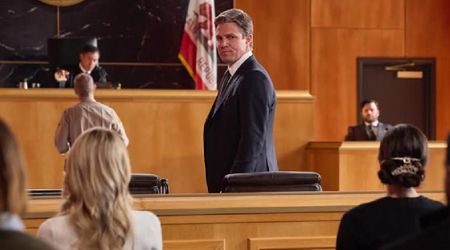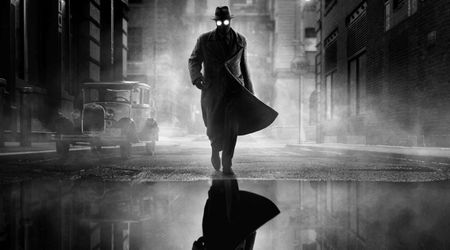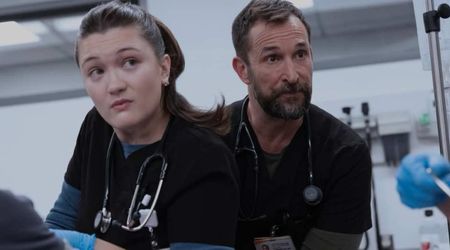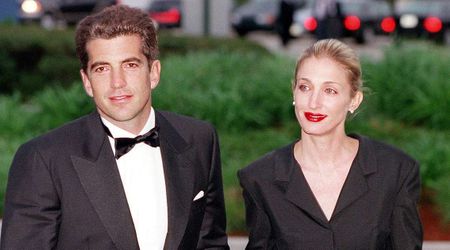Review: A&E's new documentary mini-series 'Cultureshock' premieres with a fresh narrative of Michael Jackson's final days

June 25 marks the premiere of A&E's Biography® limited original series, 'Cultureshock.' The five-part documentary series takes an in-depth look at the untold stories behind watershed moments in pop culture that have had a lasting impact on our society. Produced by Meredith’s Four M Studios in association with Entertainment Weekly, each episode of 'Cultureshock' will shed light on the untold stories behind the big, unforgettable moments of pop-culture, helmed by an acclaimed director with the full participation of key players from each story.
The series opens with the first episode 'Michael Jackson’s Final Curtain Call' coinciding with the nine-year anniversary of the tragic death of the King of Pop. Helmed by director Thom Zimny (who has also directed documentaries of other great music legends like 'Elvis Presley: The Searcher' (2018), and 2011's 'Bruce Springsteen: A Conversation with His Fans'), the subject of the documentary is a heartbreaking, yet celebratory affair - one that collectively broke the hearts of the Internet and our culture.
Looking at the final days of the pop icon’s life, the documentary sheds a light on the immeasurable pressure Jackson was under as he prepared for his final tour, and how he ultimately ended up with the biggest audience of his life during his true final farewell. It does this by interviewing a host of newscasters, reporters, editors of publishing houses, Michael's family and friends, who stitch together an account of the day when the news broke and became a story that consumed the world.
The narrative of the episode is interesting. It is as much an exploration of Michael's life and eventual tragic passing as it is a critical look at ourselves - the Internet generation that is constantly hungry for more from our idols and almost sickeningly obsessed with a constant stream of updates and information. The documentary opens with the voice of writer Warren Zanes soundtracking glimpses from the final day of Michael's life - June 25, 2009. "The reaction to Michael Jackson's death was so immediate," he begins. "It's volcanic. It was more carnival than human tragedy. That breakdown. That chaos. Draws us in."
That line sets the tone for the rest of the episode, which, nine years after the death of arguably the most famous man of his time, gives us many facts that we already know, but with a treatment that lays the grim tale bare and raw for all to see. A tale of one man's fight to uphold his legacy and the mountainous pressure that comes with it. And also a tale of the mass obsession with this man, and the sudden shift in the outlets of that obsession through the then recently budding platform of social media.
Jackson's planned return after 10 years with the 'This Is It' tour, his child abuse scandals, his admission that he was addicted to prescription drugs, his overdose on propofol, the chaos surrounding the reporting of his death - these are all things that we already know, but the way Zimny presents it gives you a larger, comprehensive view of things. It's almost like you're standing too close to an elephant and can only see the wrinkles on its skin. The documentary makes you take a step back until you see the entire elephant and gasp with awe. It does this through interviews with paramedics, the cardiologist that pronounced Michael's death, friends and family of Michael, the crew of the 2009 documentary-concert film 'Michael Jackson's This Is It' including Travis Payne, Kenny Ortega, and more, as well as audio recordings of Jackson from his last rehearsals.
A particularly chilling scene in the documentary recounts the events of the night after the final rehearsal for the opening show set to go down at the Staples Center in L.A. It's no big secret that Michael had an in-house doctor, Dr. Conrad Murray who was administering a range of prescription medicine to help Michael sleep at night. Murray was found guilty on involuntary manslaughter and sentenced to four years for Michael's death, which was ruled a homicide.
The documentary takes us through Michael's last night with a series of title-cards bearing the time and dosage of the drug administered, set against a backdrop of a stock videos juxtaposing activity in a human bloodstream against long-exposure shots of moving traffic. "2:00 am Lorazepam 2mg injection," the title card reads. "3.00 am Midazolam 2mg injection," says the next one. Until finally you see the title card that reads "10:40 am Propofol 25mg injection," and you know that the ultimate tragedy has occurred, leaving the worst to your imagination instead of actually attempting to show you what happened.
A large part of the documentary also focuses on the fans of Michael from around the world and their behavior in the newly founded social media age at the time. It reminds us that this was 2009. YouTube was just four years old. Twitter was even younger at just three years, and Instagram wasn't even around. At a time when iPhone had just revolutionized the way news, information and everything else was being consumed, the story of Michael Jackson's death became one of the first instances that broke the Internet. As the documentary reveals, even Google's servers crashed because they interpreted the massive volume of searches as a virus breach.
Indeed, the documentary reminds us that the story of the tragic death of the King of Pop was of such gargantuan importance that even the story about the coverage of the story was in itself a tale to behold. We get to see an interview with Harvey Levin, the founder of the gossip website TMZ, which was pretty much launched into the mainstream after they became the first outlet to break the news that Michael was no more. We also get to see inputs from the editors and reporters of Rolling Stone, CNN etc., who all recount the confusion that surrounded the news breaking on that fateful day. CNN reported that Michael was in a coma. TMZ was the only outlet that confirmed the death. For a brief moment, we get an insight into the content thirsty world of today and the inside workings of media publications who are constantly under the pressure to feed this thirst.
The documentary also presents Jackson as a star that grew up and adapted to the changing media of the times. From his Jackson 5 days of radio and color TV, to the paparazzi hounding MTV generation, to his final moments in the internet generation, Michael Jackson was an icon that became a part of the lives of people the world over. We get to see the first, fully actualized internet driven wake of sorts, something that is so commonplace today that we don't even pause to think about it. At that time, there were memorials built all over the world for MJ thanks to the power of social media - from Hong Kong to Tokyo to Beijing to Sri Lanka and every other corner of the world, we see glimpses of the power of song and dance that Michael instilled in millions of lives, transgressing the boundaries of race, language and creed.
Aptly fitting the title of the show, the episode presents the day that Michael died as a moment of culture shock - a moment that foreshadowed the future of social media and the power it holds to influence and move the masses within moments. It's something that is normalized to us today in our daily lives, but indeed, one could trace today's celebrity worshipping online culture back to the day that is the documentary's subject.
Ultimately, in death, just as in life, Michael Jackson drew record-breaking numbers. What was slated to be his first concert on the 'This Is It' comeback tour turned into a worldwide televised memorial event broadcasted live from the Staples Center. Passes for the memorial service were given out via lottery; over 1.6 million frenzied fans applied for tickets during the two-day application period.
As the documentary shows us, the event was more about the power of music and entertainment than a traditional memorial of sorts. The string of A-listers that performed at the event included Mariah Carey, Stevie Wonder, Lionel Richie, John Mayer, Jennifer Hudson, Usher and Jermaine Jackson. A particularly touching, yet uncomfortable moment from the memorial was when Paris Michael Katherine Jackson, Michael's daughter took the stage and broke down as she recounted her times with her father. It was a day that reminded us of the very real struggle that a public figure of such stature deals with every day and the consequences of glamorizing an icon until we hit the breaking point.
The closing moments of the documentary reflect on the grim poetic justice of Michael's death and how it was in a sense, an eerie fulfillment of Michael's promise to perform 'a final curtain call' that outdoes all of his previous work. It doesn't leave you reflecting on MJ's legacy or the tragedy of his passing. Instead, it leaves you wondering what we've become in this age of instant gratification and obscene exposure, a direct consequence of which is the pressure on our idols and icons to succeed and please - a pressure that can sometimes have drastic results.
If the opening episode of 'Cultureshock' is anything to go by, then we are in for four more episodes of gripping storytelling, told from wholly unique and original perspectives. Next up is 'The Osbournes: The Price of Reality,' which premieres on July 2 and takes a look at the story behind the groundbreaking reality TV series that catapulted Ozzy Osbourne and his family into the global spotlight.
New episodes of 'Cultureshock' premiere every Monday at 9pm ET/PT on the A&E Network.










